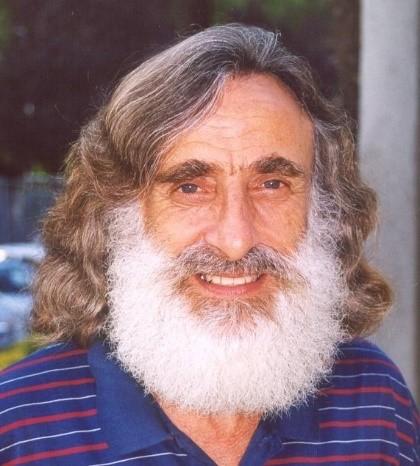Daniel Comboni
Comboni Missionaries
Institutional area
Other links
Newsletter
In Pace Christi
Bascarán Collantes Carlos
Fr. Carlos was born in Oviedo (Spain) on 11 June 1941. In 1963, he entered the novitiate at Moncada where he made his first profession on 12 October 1965. He did the scholasticate at Maia and took perpetual vows on 15 August 1969. After a couple of years in Palencia in missionary animation, he was appointed to Brazil where, with the exception of a few years in Granada (1979-1983), he spent his whole missionary life.
Fr. Carlos was a “radical” missionary with a charming sort of essential outlook. He was humble. With not a trace of exhibitionism, he wore sandals that, for him, represented the footwear of a simple and poor person but most of all of a disciple, of an itinerant and humble follower of the Master! For him, the missionary had to be radical even in outward appearance: wearing sandals meant being always close to the poor and humiliated, to reject the consumer mentality and being always alert, ready to leave for new places and take up unheard-of challenges without the shoes of pride or the haversack of material goods or the clothing of vanity, but possessing only one’s availability for service and to welcome everyone.
Fr. Carlos was happy and enthusiastic, one who easily made friends, especially with the youth and children; he had charisma. He played football very well and was famous for his technique, his pace and his ability as a leader.
He had an extraordinary musical talent and was especially in harmony with those who shared his passion, encouraging them to cultivate this gift so as to enliven their lives and those of others.
He loved the mission and always sought to have the youth follow him to Brazil.
Fr. Silvério Simões Malta, who was with him as vice-provincial during his two mandates as provincial, recounts: “At the end of the twentieth century, Fr. Fausto was coming to the end of his mission as provincial of Brazil North East and the straw ballots indicated Fr. Carlos as his successor. Those were difficult times for him who had always been one who was free as regards structures, no matter what they were. His way of celebrating and animating celebrations, considered by some as slightly unorthodox, his critical attitude towards civil and religious authorities and even his personal appearance – with long hair, a long beard and wearing sandals – demonstrated his great freedom. Taking all this into account, his first reaction was to withdraw his name from the list (which he requested during the provincial assembly) but, seeing the insistence and support of his confreres, he decided to go ahead and was elected provincial.
A man of great ideals, during his mandate he sought to give a new impulse to the Province, both in initial formation by promoting a more inserted alternative, and in the field of the mission, promoting the opening of Itupiranga-PA, who was meant to represent the new face of the Comboni mission. Some things succeeded while others did not, bur Fr. Carlos was not one to lose heart when things did not go as planned. In him one certainty was deeply rooted: Christ is the Lord of the mission and he also used our limits and our defeats to make it grow.
As well as that, even though he had great ideals, he was very realistic, aware of his own limits and those of the confreres. He often said: ‘The mission is like a symphony concert. The music is written perfectly but the musicians are very limited and out of tune’.
He was not the sort of person who shirked the challenges of the mission. Once he ended his mandate as provincial, he chose to integrate the community of Itupiranga-PA which, it was planned, would be different from the others: tenacious, in the best sense of the word, he refused to give up trying once again and moved there. However, the emerging needs of the Church and our limited resources could not provide for this novelty”.
To give an idea of who Fr. Carlos really was, we may end by quoting a saying that the people often used in speaking of him: ‘A priest who is good at football and good at saying Mass’. He was a man with a special charism, dedicated to God and the people.

